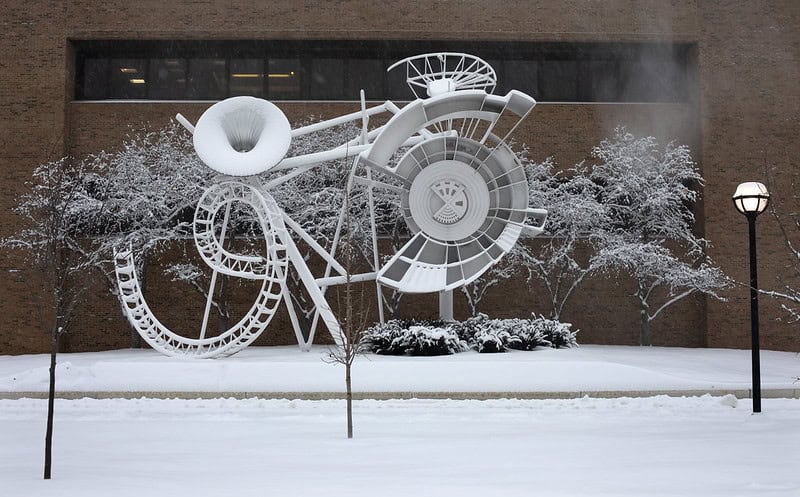
Two Faculty Named 2025 Arthur F. Thurnau Professors
The Board of Regents has named Professor Aaron J. Ridley and Affiliated Professor Brian K. Arbic to the honor of Arthur F. Thurnau Professors.

The Board of Regents has named Professor Aaron J. Ridley and Affiliated Professor Brian K. Arbic to the honor of Arthur F. Thurnau Professors.
Two professors who teach at the University of Michigan Department of Climate and Space have been named Arthur F. Thurnau Professors, including Aaron J. Ridley and Brian K. Arbic, an affiliated professor. They will hold the Thurnau title for the duration of their careers at U-M and will receive $20,000 to support activities that further enhance their teaching.
To become a Thurnau professor, faculty members must demonstrate a strong commitment to teaching and learning, excellence and innovation in teaching, and dedication to working effectively with a diverse student body.
They also must have made an impact on students’ intellectual or artistic development and on their lives, and contributed to undergraduate education in ways that extend beyond the classroom, studio or lab.
The Arthur F. Thurnau Professorships were established in 1988. They are named after Thurnau, a U-M student from 1902-04. The Thurnau Charitable Trust, which was established through Thurnau’s will, provides support for the award. The Board of Regents approved the professorships Feb. 20. The Thurnau appointments are effective July 1.
Professor of Climate and Space Sciences and Engineering

Dr. Ridley is known as both a top space physicist and a top student mentor.
His approach to research and education is hands-on and experiential, and he has developed courses where undergraduates can dive into data, models and instrumentation.
Ridley’s ENG 100 section, which was named “Section of the Year” by the Office of the Associate Dean for Undergraduate Education, enabled students to design, build and launch a rocket, as well as develop their own computer simulation of rocket flight dynamics. In another section, students designed, built, tested and launched small sensors on high-altitude weather balloons.
One first-year student wrote, “The idea of building our own payload to launch to such high altitudes where we could observe the curve of the Earth and its atmosphere was just the most exciting thing I had ever come across.”
Outside the classroom, Ridley posts videos to his Hands On Engineering YouTube channel and Rocket Science 101 on Coursera.
Professor of Climate and Space Sciences and Engineering, Professor of Earth and Environmental Sciences

Dr. Arbic has been recognized for innovative teaching and effective mentorship, with students commending his ability to connect theory with practice.
One student wrote that collecting data during a field study aboard a National Oceanic and Atmospheric Administration research vessel “brought much more depth to the coursework than if we had simply been given data in a spreadsheet.”
Arbic also equips students with industry-relevant skills by using tools like MATLAB in coursework, and his impactful mentoring is illustrated by the fact that six first-authored papers were published by undergraduates and high school students from his research lab.
Outside his department, Arbic designed a course to improve scientific literacy among future elementary school teachers — and beyond U-M, Arbic founded and directs the Coastal Ocean Environment Summer School in Nigeria and Ghana. This program serves approximately 150 African university undergraduates annually and affords research opportunities to U-M students.
Congratulations to our faculty members!